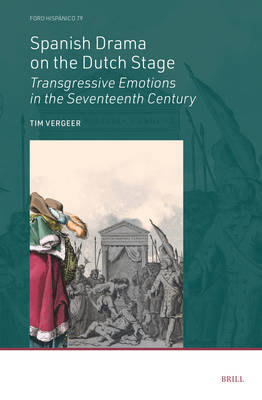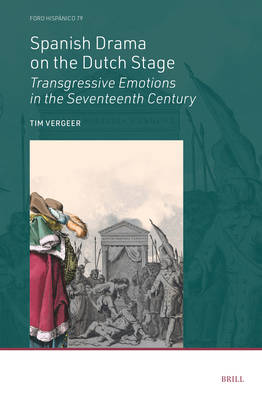
- Afhalen na 1 uur in een winkel met voorraad
- Gratis thuislevering in België vanaf € 30
- Ruim aanbod met 7 miljoen producten
- Afhalen na 1 uur in een winkel met voorraad
- Gratis thuislevering in België vanaf € 30
- Ruim aanbod met 7 miljoen producten
Zoeken
€ 190,95
+ 381 punten
Omschrijving
Between 1568 and 1648, the Dutch waged war against the occupying Spanish Empire. Simultaneously, Dutch theatre-goers eagerly flocked to adaptations of Spanish comedia nueva. This study shows how and why plays by Lope de Vega, Calderón, and others were, paradoxically, theatrical blockbusters in the Dutch Republic and Flanders. Using techniques such as spectacle, illusion, and tableaux vivants alongside violence, incest, and cross-dressing, the comedias were emotional whirlwinds of love, honour, and revenge. Examining historical texts and stage practices from Amsterdam, Antwerp, and Brussels, Tim Vergeer demonstrates that this vastly understudied genre offered audiences a voyeuristic escape from the emotional norms of early modern life.
Specificaties
Betrokkenen
- Auteur(s):
- Uitgeverij:
Inhoud
- Aantal bladzijden:
- 375
- Taal:
- Engels
- Reeks:
- Reeksnummer:
- nr. 79
Eigenschappen
- Productcode (EAN):
- 9789004749863
- Verschijningsdatum:
- 18/12/2025
- Uitvoering:
- Hardcover
- Formaat:
- Genaaid
- Afmetingen:
- 155 mm x 235 mm

Alleen bij Standaard Boekhandel
+ 381 punten op je klantenkaart van Standaard Boekhandel
Beoordelingen
We publiceren alleen reviews die voldoen aan de voorwaarden voor reviews. Bekijk onze voorwaarden voor reviews.











